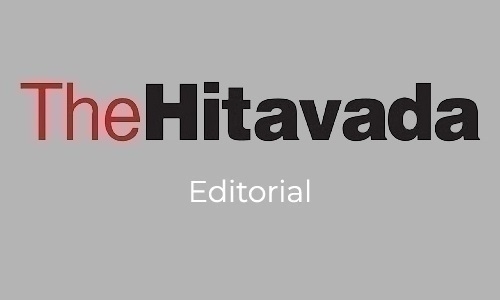CLIMATE ACTION
| Date :14-Nov-2024 |

GLOBAL attention this week is focussed on Baku in
Azerbaijan where the Conference of Parties or
COP29 is in progress. The apex climate meet has
started with cautious optimism over the landmark
decision regarding establishment of global carbon market. However, the statement of the UN SecretaryGeneral Mr. Antonio Guterres that the developing countries
‘must not’ leave Baku ‘empty-handed’ provides enough hint
that conflict of opinion dominates over the need for collective action related to tackling climate change.
The establishment of global carbon market is viewed with
cautious optimism. Regulation of the carbon market with an
effort to make the mechanism transparent offers optimism.
However, allowing countries to have bilateral carbon trading
agreement, and having in place a UN-governed system to
reportedly enable both countries and companies to offset
and trade carbon emissions hint at complexities that may
arise gradually. For want of a mechanism, already some countries had entered into bilateral agreements on their own
terms. The step taken at Baku has just formally recognised
this. But, bringing in UN-governed system too late in the day
is likely to see newer flashpoints, which may further strengthen the calls for reforms of global institutions.
At more fundamental level, carbon trading in itself is a sham.
Because, it allows buying and selling carbon credits thereby
allowing emission of carbon dioxide by countries and companies. The polluting countries offset their emissions by way
of offering climate finance to other less polluting countries
to undertake mitigation measures. To state the things bluntly, this places the burden of mitigation outcomes on the
developing countries to offset the emissions of the developed ones. Since the global institutions like the UN are dominated by the developed countries, any mechanism that
involves such institutions is most likely to impose new indirect and unstated burden on the Global South. This is what
has emerged as the new flashpoint.
The developed countries are pressing for other countries
also to join in offering climate finance. Their plea is that the
place in the economic order has changed for many countries. This is being viewed by the developing countries as a
device of the developed countries to indirectly express reluctance in bearing the responsibility of climate finance. Besides,
the developing countries are weary of the fact that 70 per
cent of the total climate finance provided by the developed
countries was in the form of loans. This is being viewed as
duplicity of developed countries. Instead of using climate
finance as a tool for compensating for carbon emissions, the
developed countries have actually offered loans to developing countries.
Of course, this has strengthened the perception in the Global South that the developed Global North has been using climate as a tool to further own political agenda.
In this situation, India and China have emerged as the leading voices pitching for more effective and more transparent
climate financing mechanism. An Indian think-tank Council
on Energy, Environment, and Water (CEEW) has come up
with the path-breaking Climate Accountability Matrix as a
benchmark for evaluating climate performance of the countries. The Matrix has found the US, Australia, Canada, Saudi
Arabia, and Turkey need to step up climate action significantly. India and South Africa have been found to have made
significant efforts in climate action. Such initiatives are needed to make the climate action agenda more rational, equitable, and just for the developing countries. Of course, the
COP29 is still in progress. One can just hope that it strikes a
deal that offers optimism to all the parties concerned, and
not just a chosen few.



